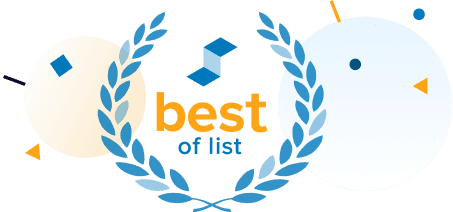Best Money Market Accounts
April 2024
Looking for a low-risk investment account that will still grant you access to the funds when needed? A money market account may be the right solution. But to get the most out of it, you need to find the best interest rates.

SuperMoney may receive compensation from some or all of the companies featured, and the order of results are influenced by advertising bids, with exception for mortgage and home lending related products. Learn more
The best money market accounts offer high interest rates, low fees, and modest minimum deposits. With hundreds of accounts available, finding the best one for you can be a challenge. That is why we've done the hard work for you. Read on to find our picks for the best money market accounts. Plus, find answers to all the frequently asked questions on how money market accounts work.
Methodology
The team at SuperMoney analyzed over a hundred money market account offerings to find the best of the best. We vetted each provider based on their APYs, fees, customer service, balance requirements, and perks. Now you can compare the best money market accounts side-by-side in one easy place.
Alternatives to savings accounts
Money market accounts can be an excellent option if you're looking for a low-risk liquid investment vehicle, but there are alternatives that may provide better terms. If you're planning to open an money market account, you may also want to consider other options, such as CDs, savings accounts, and high-yield checking accounts.
Certificates of deposit
CDs offer some of the highest interest rates available for deposit accounts insured by the FDIC. They can be a risk-free option if you're investing money you will need for a specific purpose, such as a down payment on a mortgage or a new car, and you are OK with not having access to the money for a period of time.
Savings accounts
Savings accounts provide high interest rates (for an FDIC-insured deposit account), instant access to your money, and low minimum deposits.
High-yield checking accounts
High-yield checking accounts offer much higher interest rates than regular savings accounts. You do have to jump through a few hoops, such as making a minimum number of transactions and having a direct deposit linked to your account, but the high interest rates are generally worth the effort if you want to combine the benefits of a checking account and a high-yield savings account.
Frequently asked questions about money market accounts
Still have questions? Here's a look at answers to the most frequently asked questions about money market accounts.
How do I choose a money market account?
When shopping for a money market account, you should consider the following key factors:
Initial deposit/minimum balance requirements
Money market accounts often come with minimum balance requirements. To open the account or avoid a fee, your initial deposit has to be a certain amount. Banks and credit unions may also have tiers of APYs that coordinate with minimum investment amounts.
For example, a credit union may only pay interest on your account if the balance is above $2,500, and increase the payout up to 0.60% with a minimum $250,000 investment. So it's important to find out what minimum balance is required as it may be more than you want to invest.
Some accounts also cap the amount you can invest. For example, some banks have no initial deposit or minimum balance requirements but cap investments at $100,000. This is also a factor to consider if you want to invest large amounts into the account.
APY
The annual percentage yield (APY) is a number that tells you how much interest you will earn on your investment per year, including compounding interest. The higher the rate, the more you earn.
However, be sure to read the fine print that goes along with the APY to see if there are any requirements.
Fees
Account fees are important to consider because they will eat into any returns you earn. If the fees are too high, they could counteract an attractive interest rate.
Common fees include:
- Monthly maintenance fee: A monthly fee you pay to keep the account open. May only apply if you don't meet the minimum balance requirement.
- Excessive transaction fee: Accounts often limit the number of transactions you can make per month. If you exceed the limit, you often face a per-transaction fee.
- Billpay stop payment: There is often a fee per check.
Account access
Another factor to consider is how you gain access to the money in your money market account. Federal regulations limit you to six withdrawals per month. Companies often make it easier to access your funds by offering check-writing privileges and/or ATM cards.
Helpful perks
Then, be sure to factor in other helpful perks the company offers like a mobile app, easy online account management, overdraft protection for a connected checking account, etc.
Which bank has the best money market rates?
Money market rates fluctuate all the time. Further, just because a bank or credit union advertises the highest APY doesn't mean it offers the best value.
You can monitor the rates of various money market account offerings on SuperMoney's money market review page. However, be sure to consider the full picture, including interest rate, balance requirements, and fees when making a decision.
Can you lose your money in a money market account?
While you could theoretically lose money in a money market account, it is highly unlikely.
Up to $250,000 in a money market account with an FDIC-insured bank or NCUA-insured credit union will be protected if the institution fails.
Additionally, the funds from money market accounts are invested in stable, short-term securities that are low-risk. Examples include certificates of deposit, commercial paper, and government securities.
Where can I earn the most interest on my money?
When considering your investment options to find out where you can earn the most interest on your money, it's important to consider that higher interest comes with higher risk. So while you can gain more, you can also lose more.
The highest-risk, highest-reward investments include currency trading, high-yield bonds, initial public offerings (IPOs), and options trading.
Money market funds fall on the very conservative side of the spectrum, offering low-risk and modest returns. It can be good to diversify your investments, so you have a foundation of low-risk investments complemented by some higher-risk, higher return routes.
Which is better, a CD or money market account?
Whether a certificate of deposit (CD) or money market account is better for you depends on if you need access to the investment or not.
CDs often offer a higher interest rate, but they require you to deposit your money and leave it alone for a specified period of time. The longer the term, the higher the return.
Money market accounts, on the other hand, give you access to the investment. While certain types of transactions are limited, you can access the money if you need it.
The national average interest rate on money market accounts sits at 0.07%, while the average rate on CDs ranges from 0.04% for one-month terms and up to 0.33% for 60-month terms.
Money market account vs. high yield savings account: Which is better?
Looking at the national average, savings accounts offer a 0.05% return while money market accounts offer 0.07%.
However, the best money market accounts and high yield savings accounts offer much higher rates.
In some cases, you may find a high yield savings account that offers a higher rate than a money market account. For example, many online savings accounts are now offering competitive returns.
Another factor to consider is that money market accounts are made to be accessible. They often come with an ATM card and check writing privileges. Savings accounts typically require you to perform transfers online to move your money.
Easier accessibility can be a plus for those who want to be able to use their money often. Although it may be a con for those who don't want to spend the money and prefer it's harder to access.
Money market accounts also often come with a higher barrier entry. For example, they are more likely to have monthly fees, minimum balance requirements, and more complicated application processes.
It can be wise to browse the best money market accounts alongside the best high yield savings account to see where you can find the best value.
What are the pros and cons of a money market account?
Money market accounts have their strengths and weaknesses.
Pros
- Better interest rates than you can get with traditional savings accounts and many short-term CDs.
- Check writing privileges.
- ATM cards.
- Often FDIC- or NCUA-insured.
- Low-risk.
Cons
- Monthly fees may apply.
- Minimum balance requirements may apply.
- Interest rates often lower than longer-term CDs.
- Some high yield savings accounts offer higher interest rates.
- Account initiation can be complex.
- Certain transactions are limited to six per month.
The best money market accounts lean heavily into the pros while lessening the cons.
Ready to open a money market account?
Browse our best money market accounts above from various banks and credit unions all on one page. At a glance, you can easily compare fees, interest rates, minimum balance requirements, and real customer feedback to find the best fit for your investment needs.
About the Author

SuperMoney
SuperMoney is the most comprehensive financial services comparison site around. We have published hundreds of personal finance articles and provide detailed reviews on thousands of financial products and services. Our unbiased advice and free comparison tools help consumers make smart financial decisions based on hard data, not marketing gimmicks.